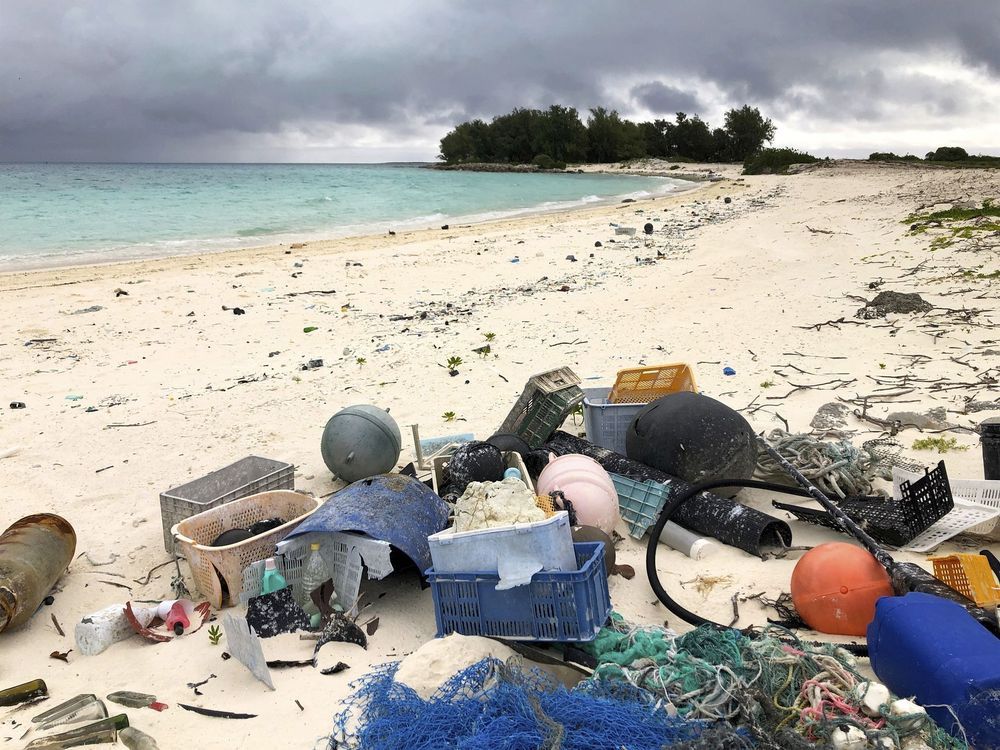SpaceX is now flying American astronauts to space. Here’s how it all started.



Summary: Study reveals how gene control mechanisms determine the identity of neurons in the embryonic brainstem. A failure in differentiation in developing brainstem neurons can lead to behavioral abnormalities, including ADHD.
Source: University of Helsinki
A recent study at the University of Helsinki reveals how gene control mechanisms define the identity of developing neurons in the brainstem. The researchers also showed that a failure in differentiation of the brainstem neurons leads to behavioural abnormalities, including hyperactivity and attention deficit.

If this thing becomes successful, I think it could enable plastics to replace steel in a lot of vehicles and machinery.
Engineers are always on the lookout for materials that can improve the performance of their existing products. Carmakers too are always on the lookout to make lighter yet stronger parts to help cars perform better. And, in most cases, these solutions come at a pretty hefty cost.
However, a bunch of Indian engineers at the Bengaluru R&D Facility of Saudi Arabia’s Sabic petrochemical company have created a plastic that is stronger than steel while being extremely lightweight. They’ve created a resin-metal based hybrid solution that they call Noryl GTX.


Researchers from Sorbonne University in Paris have achieved a highly efficient transfer of quantum entanglement into and out of two quantum memory devices. This achievement brings a key ingredient for the scalability of a future quantum internet.
A quantum internet that connects multiple locations is a key step in quantum technology roadmaps worldwide. In this context, the European Quantum Flagship Programme launched the Quantum Internet Alliance in 2018. This consortium coordinated by Stephanie Wehner (QuTech-Delft) consists of 12 leading research groups at universities from eight European countries, in close cooperation with over 20 companies and institutes. They combined their resources and areas of expertise to develop a blueprint for a future quantum internet and the required technologies.
A quantum internet uses an intriguing quantum phenomenon to connect different nodes in a network together. In a normal network connection, nodes exchange information by sending electrons or photons back and forth, making them vulnerable to eavesdropping. In a quantum network, the nodes are connected by entanglement, Einstein’s famous “spooky action at a distance.” These non-classical correlations at large distances would allow not only secure communications beyond direct transmission but also distributed quantum computing or enhanced sensing.


Hundreds of American hospitals are being targeted in cyberattacks by the same Russian hackers who American officials and researchers fear could sow mayhem around next week’s election.
The attacks on American hospitals, clinics and medical complexes are intended to take those facilities offline and hold their data hostage in exchange for multimillion-dollar ransom payments, just as coronavirus cases spike across the United States.
“We expect panic,” one hacker involved in the attacks said in Russian during a private exchange on Monday that was captured by Hold Security, a security company that tracks online criminals.

Plastic waste comes back in black as pristine graphene, thanks to ACDC.
That’s what Rice University scientists call the process they employed to make efficient use of waste plastic that would otherwise add to the planet’s environmental woes. In this instance, the lab of Rice chemist James Tour modified its method to make flash graphene to enhance it for recycling plastic into graphene.
The lab’s study appears in the American Chemical Society journal ACS Nano.

Senior U.S. officials revealed Thursday that security threats have been made against top Pentagon authorities not only when traveling outside the U.S., but when on American soil.
Frist reported by NBC News on Thursday and verified for Fox News by a senior Department of Defense representative, security officials believe the threats made could be linked to the killing of Iranian Gen. Qasem Soleimani by American forces in January, though definitive links could not reportedly be made.
The names of the Pentagon officials were not released, but they are believed to have been senior leadership involved in the operation that oversaw the takedown of Soleimani. Military leaders have also reportedly been targeted.

The United States has sold crude oil seized from four Iranian tankers earlier this year for some $40 million the AFP reports, citing a U.S. government official.
“We estimate that in excess of $40 million will be recouped by the United States related to the sale of petroleum from those four vessels,” Michael Sherwin, acting U.S. attorney for the District of Columbia said. Sherwin added that “a great portion” of the money will be donated to a fund for the victims of “state-sponsored terrorism”.
In the middle of August, the U.S. Administration said it had seized the fuel cargo of several vessels, alleging that the fuel came from Iran and was going to Venezuela. The confiscation followed a lawsuit filed by U.S. prosecutors to seize the cargo carried by the four vessels for violating U.S. sanctions against Venezuela.